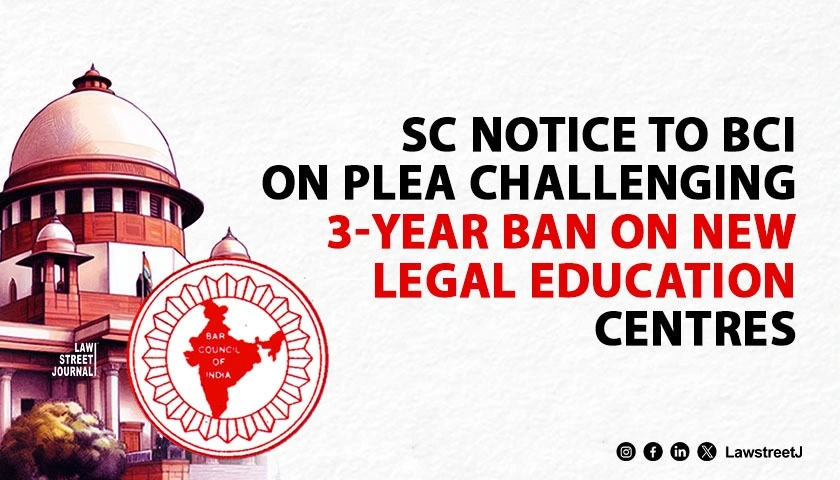NEW DELHI: The Supreme Court has issued notice to the Bar Council of India on a plea challenging the decision to impose a blanket three-year moratorium on the establishment of new centers of legal education across India, as per its notification of July 06, 2025.
A bench of Justices Vikram Nath and Sandeep Mehta sought a response from the regulator of legal education and profession on the petition by a 30-year-old advocate from Delhi, Jatin Sharma.
The plea urged the court to replace the blanket moratorium with targeted, transparent, region specific measures to improve legal education standards and direct the BCI to reconstitute the legal education committee and curriculum development committee with participation from sitting or former judges of the Supreme Court or High Courts, senior advocates, and experienced academicians.
It also sought a mandamus to strengthen the enforcement of the Legal Education Rules, 2008 against sub-standard Centres of Legal Education (CLEs) through effective inspections, sanctions, and compliance mechanisms instead of imposing the blanket three-year moratorium on establishment of new CLEs.
His plea contended that the action, purportedly undertaken in the name of “improving standards of legal education,” is manifestly arbitrary, disproportionate, and ultra vires the statutory powers of the BCI.
The plea also claimed the move--restricting access to legal education-- was also violative of the fundamental rights guaranteed under Articles 14, 19(1)(g), and 21 of the Constitution.
It pointed out, the stated objective of the moratorium rules is to address alleged deterioration in the quality of legal education.
"However, the blanket and uniform nature of the moratorium is overbroad, disproportionate, and likely to cause adverse consequences, particularly for aspirational and underserved regions, without effectively addressing the real causes of decline,'' the plea said.
Instead of targeted enforcement against non-compliant institutions, the BCI has imposed a blanket ban, thereby infringing constitutional freedoms, university autonomy, and public access to legal education, it stated.
Disclaimer: This content is produced and published by LawStreet Journal Media for informational purposes only and does not constitute legal advice. The views expressed are independent of any legal practice of the individuals involved.















